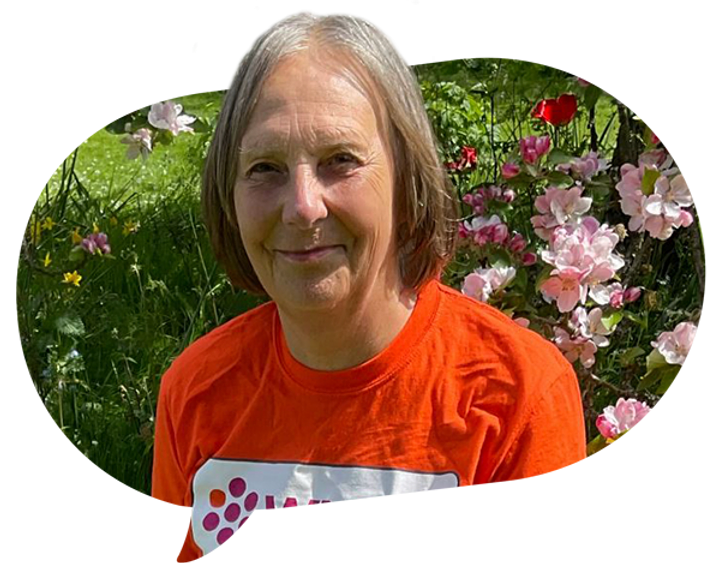Initially, I was diagnosed with MGUS – a blood condition that has few symptoms and only a very small chance of developing into WM. However, I was due a hip operation. The bone they removed from my joint was sent off for further testing, which is when, in 2018, I eventually received my WM diagnosis.
Despite having had MGUS identified, being told I had WM was not the diagnosis I was expecting. All I could hear was the word ‘cancer’ and that there was no cure. Everything became a bit of a blur.
There was very little information available. I was given a booklet on lymphoma, but it only had one page specifically about WM! I tried to find out more information by myself, but I was overwhelmed with brand new phrases like ‘light chains’ and ‘paraproteins’, not to mention the long names of the various drugs. It was a lot to take on board and became a worrying time. I desperately needed someone to talk to.
My wonderful children did some research of their own and found out about WMUK. It opened up a world of experts, information, and the thriving WM community. I’ve since been able to attend WMUK conferences, speak directly with expert consultants and meet others in similar experiences through the online forums. There are also virtual support groups that have helped so many people through the pandemic and self-isolation, as well as webinars and online information pages that break down complicated terms. All these resources have helped me to really understand and accept the disease.
The trauma and lack of knowledge I initially experienced isn’t something I want anyone else to go through. If you’re newly diagnosed, my first piece of advice would be: don’t be too alarmed. It is scary to hear you have cancer but your diagnosis doesn’t mean the end. Since meeting others with the disease, I now know that many people live well with it for many years, some not even needing treatment for a long time.
Finding somewhere with reliable and up to date information like WMUK will really help too, as it can be hard to learn about something so rare.
Someone said to me, “it’s okay not to be okay,” and “do what’s right for you and not compare yourself to others.” I have personally found this sound advice.
Finally, if you can, take someone with you to your appointments. Even if you are calm, you might miss some information and the second person will be able to take notes and ask questions that you’ve forgotten.
I’m passionate about WMers getting the support and information they need. In 2021, WMUK announced they were launching UK’s first support line dedicated to helping people affected by WM. I challenged myself and my family to walk 32.5 miles to help fund the service, knowing just how much of a lifeline it would have been to me when I was first diagnosed. We raised over £3,500 and decided to make our family walk an annual one!



